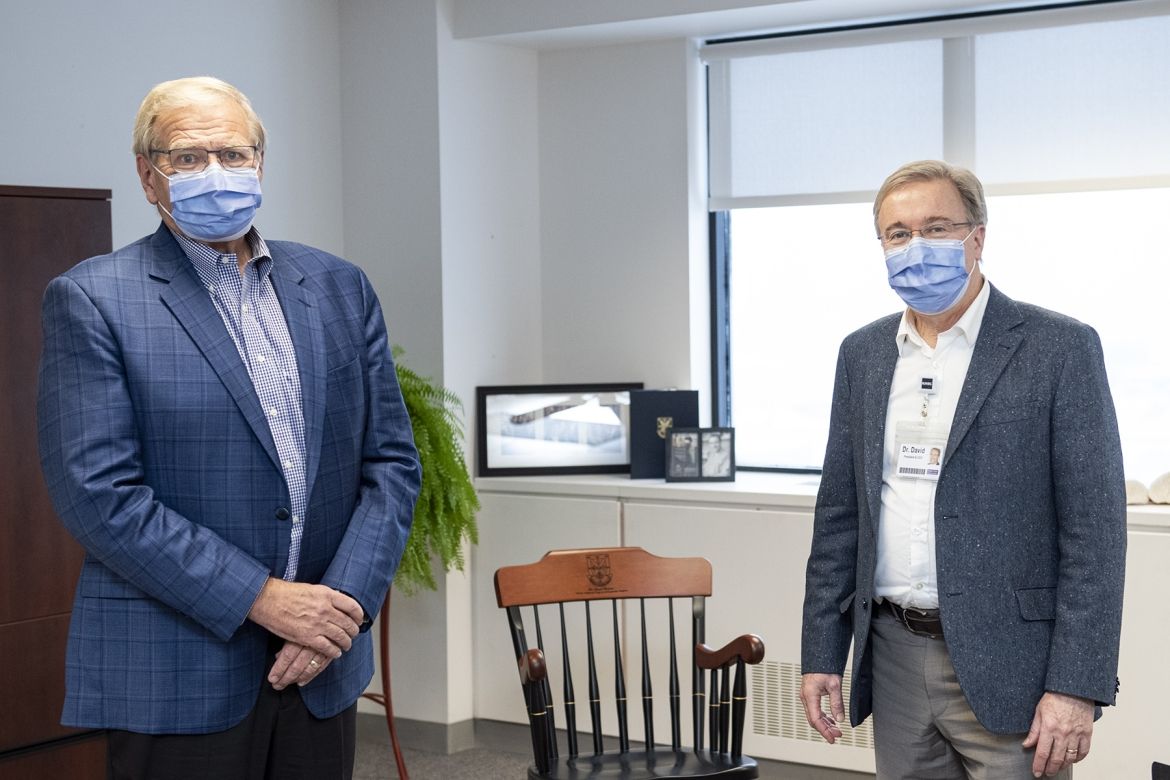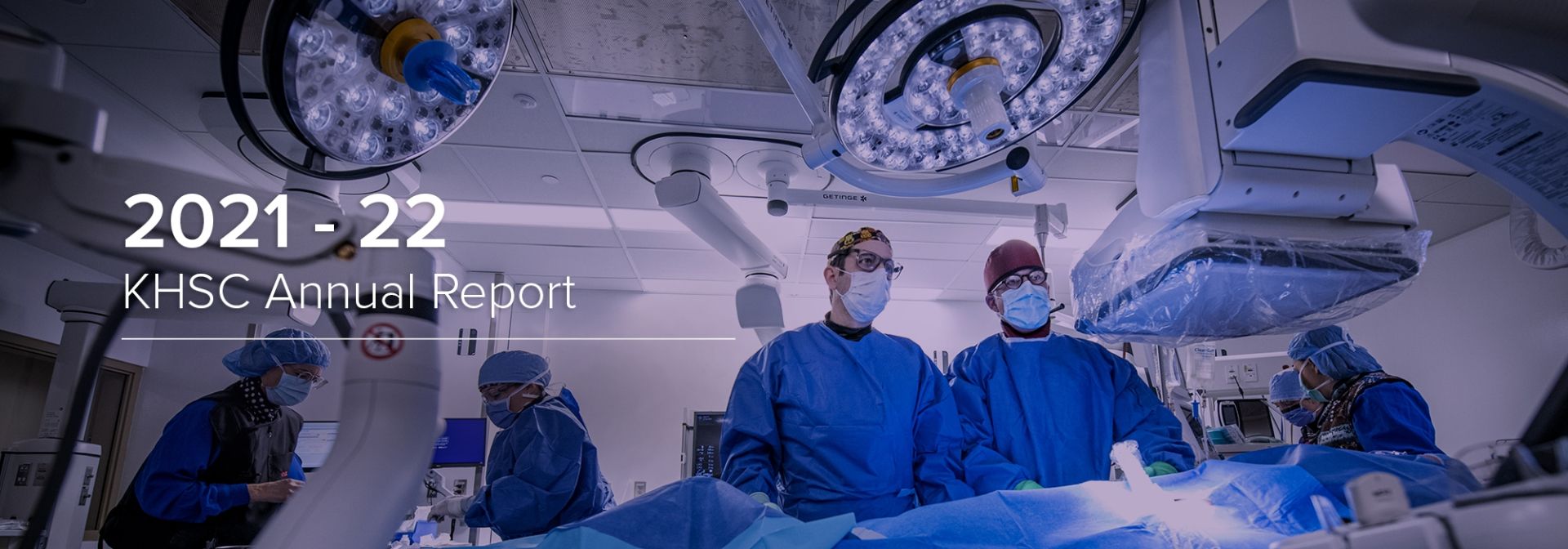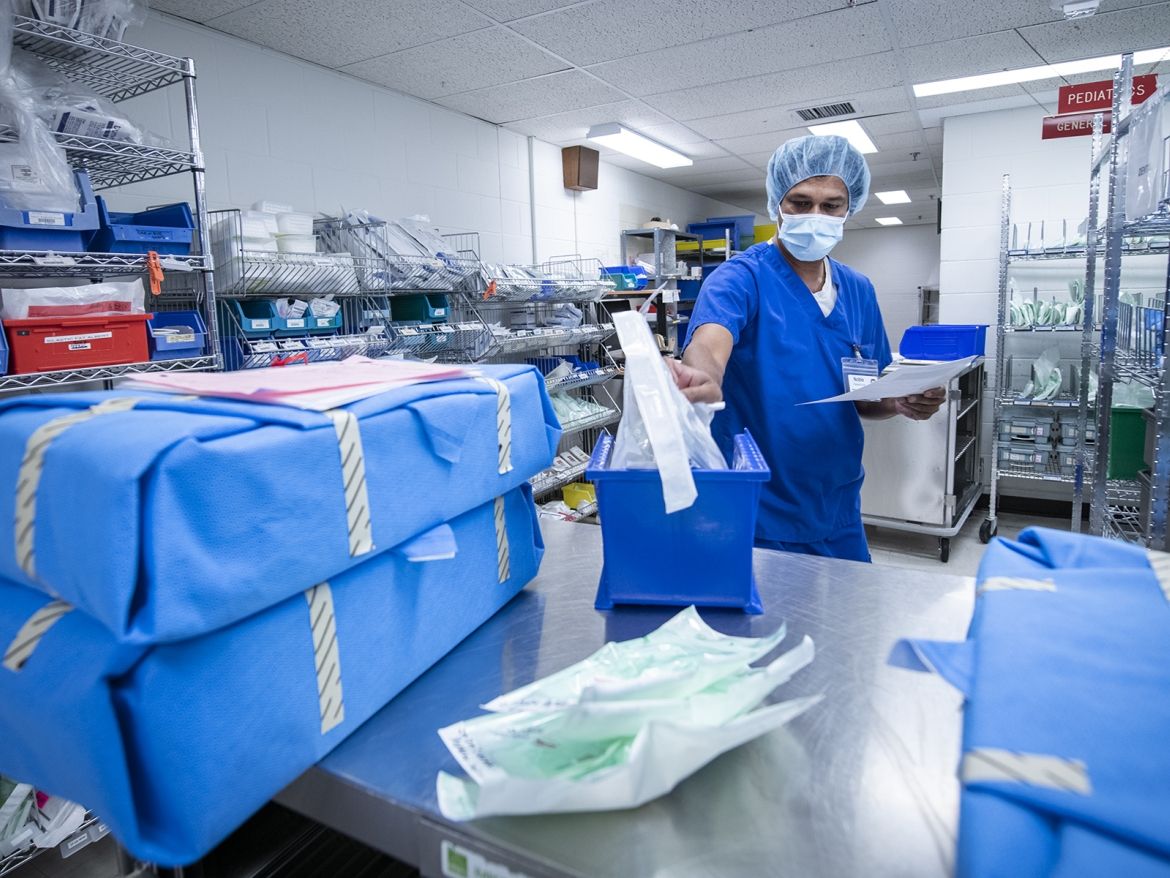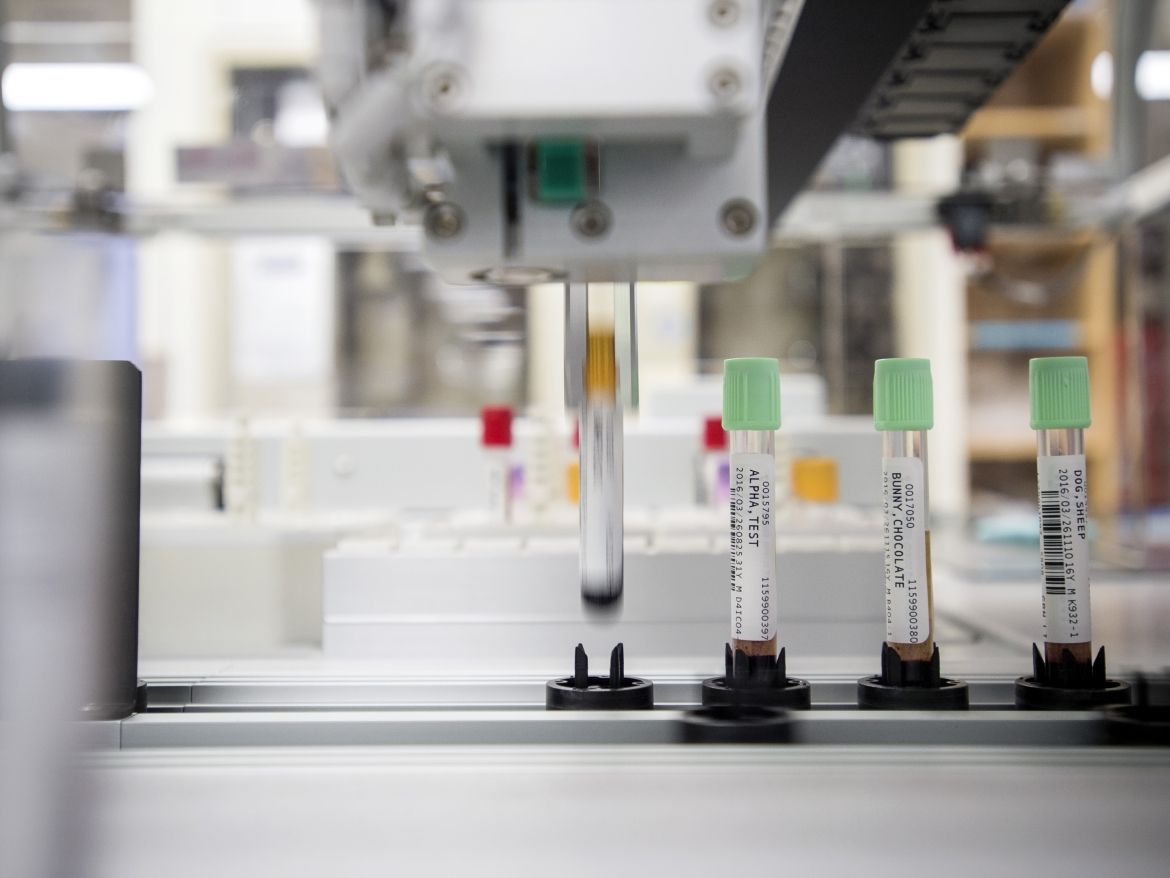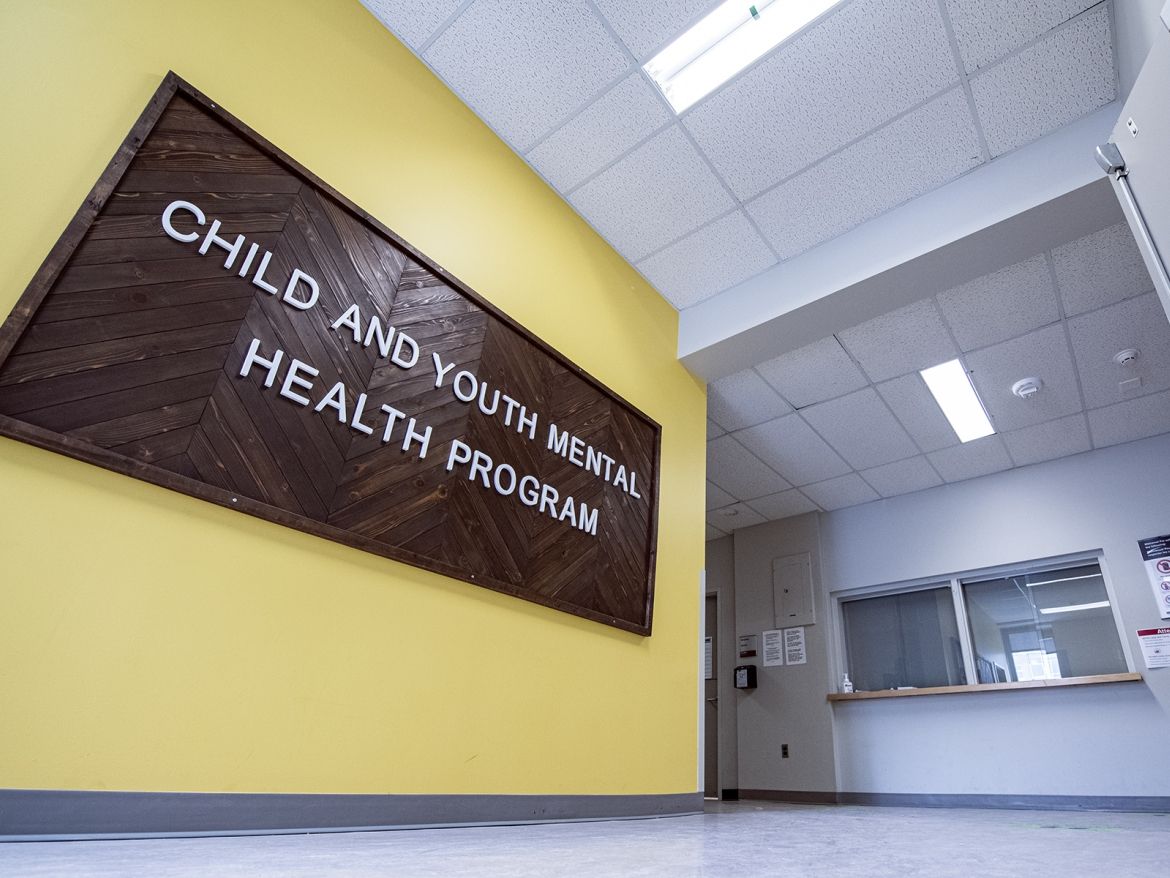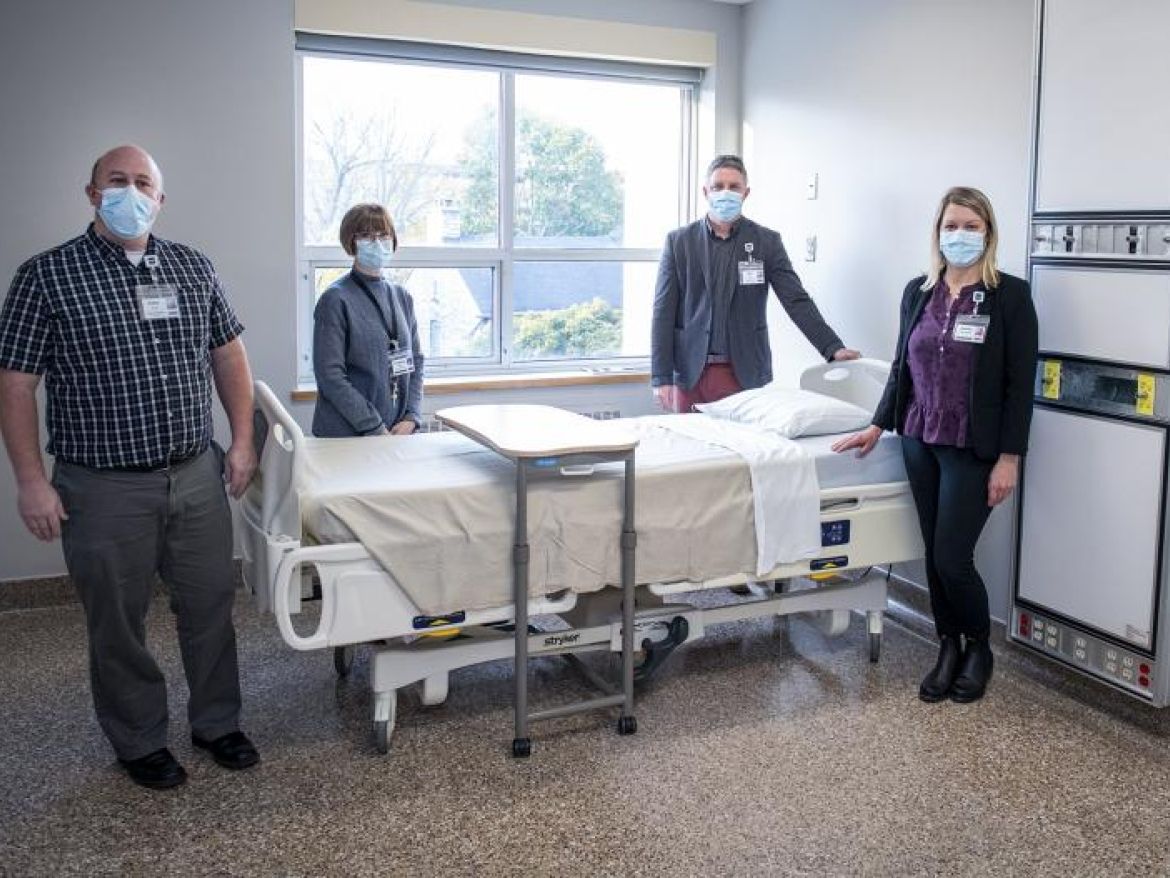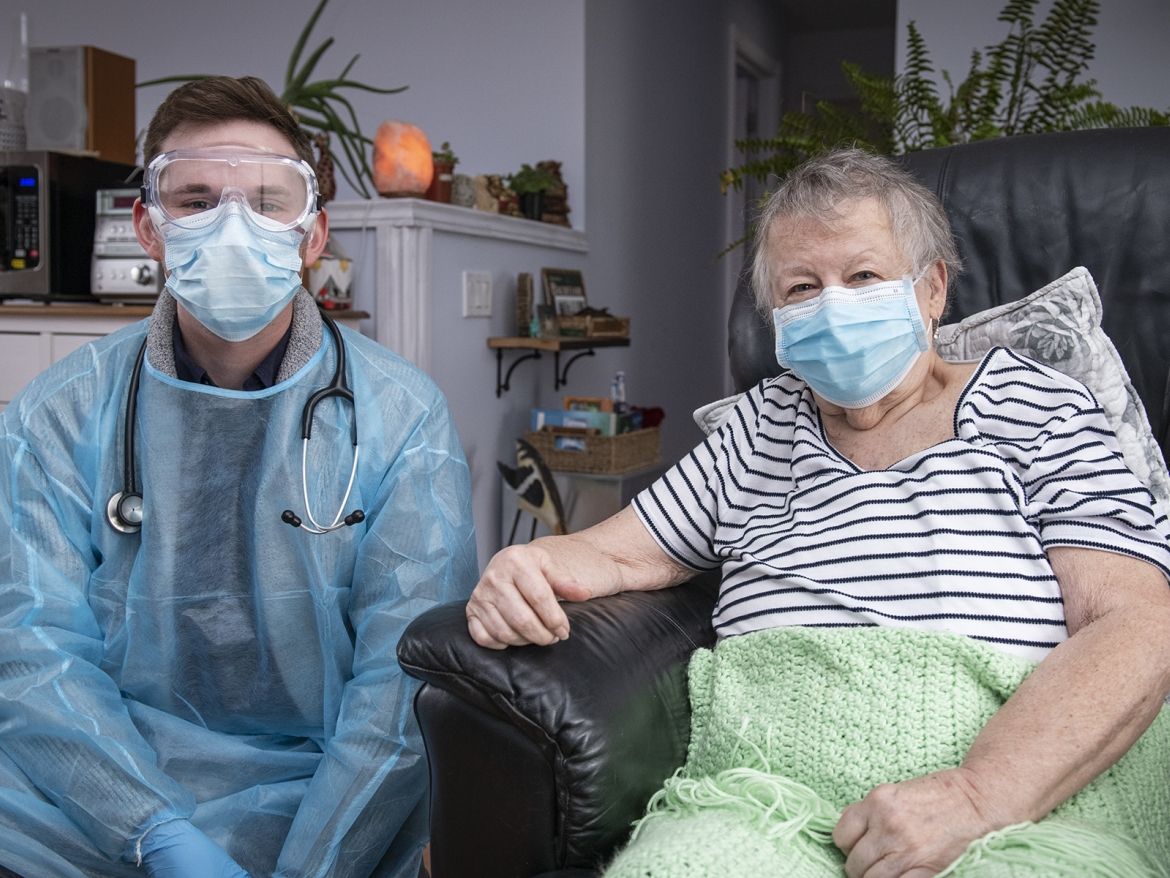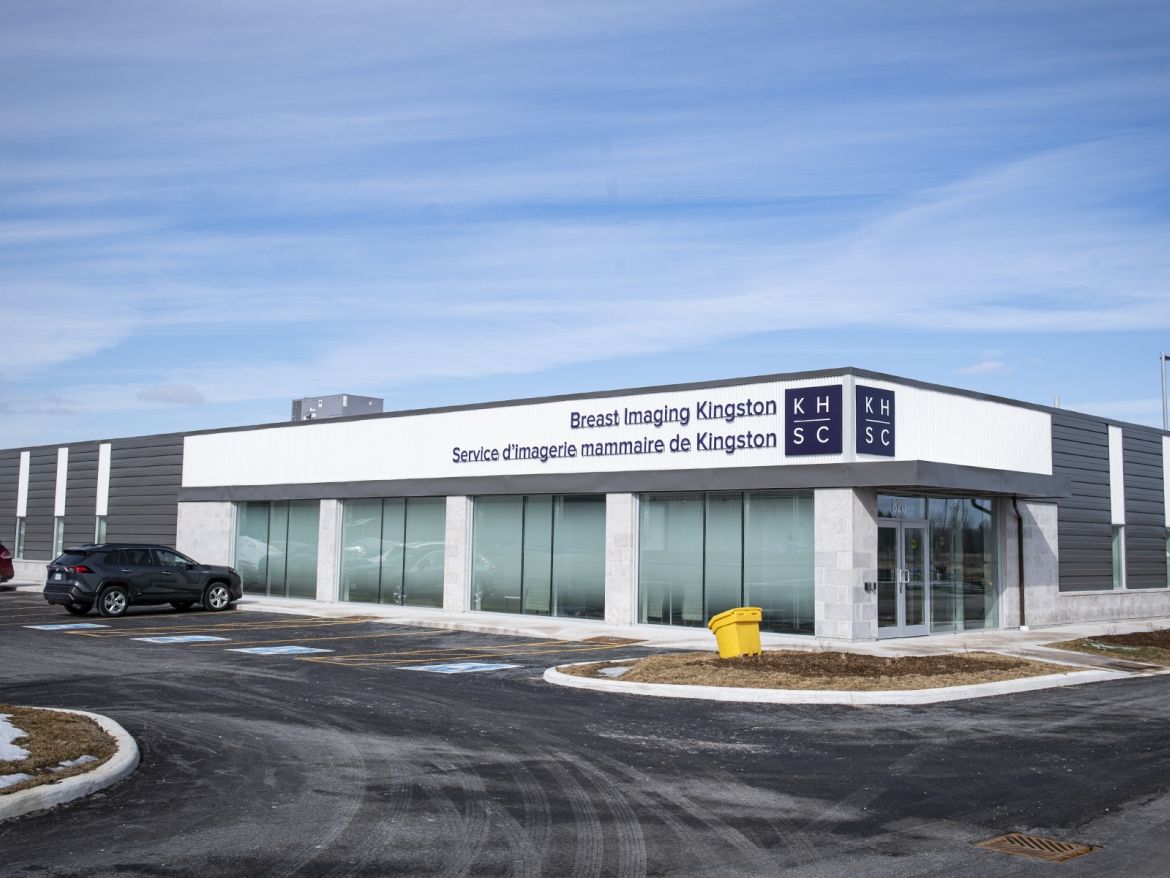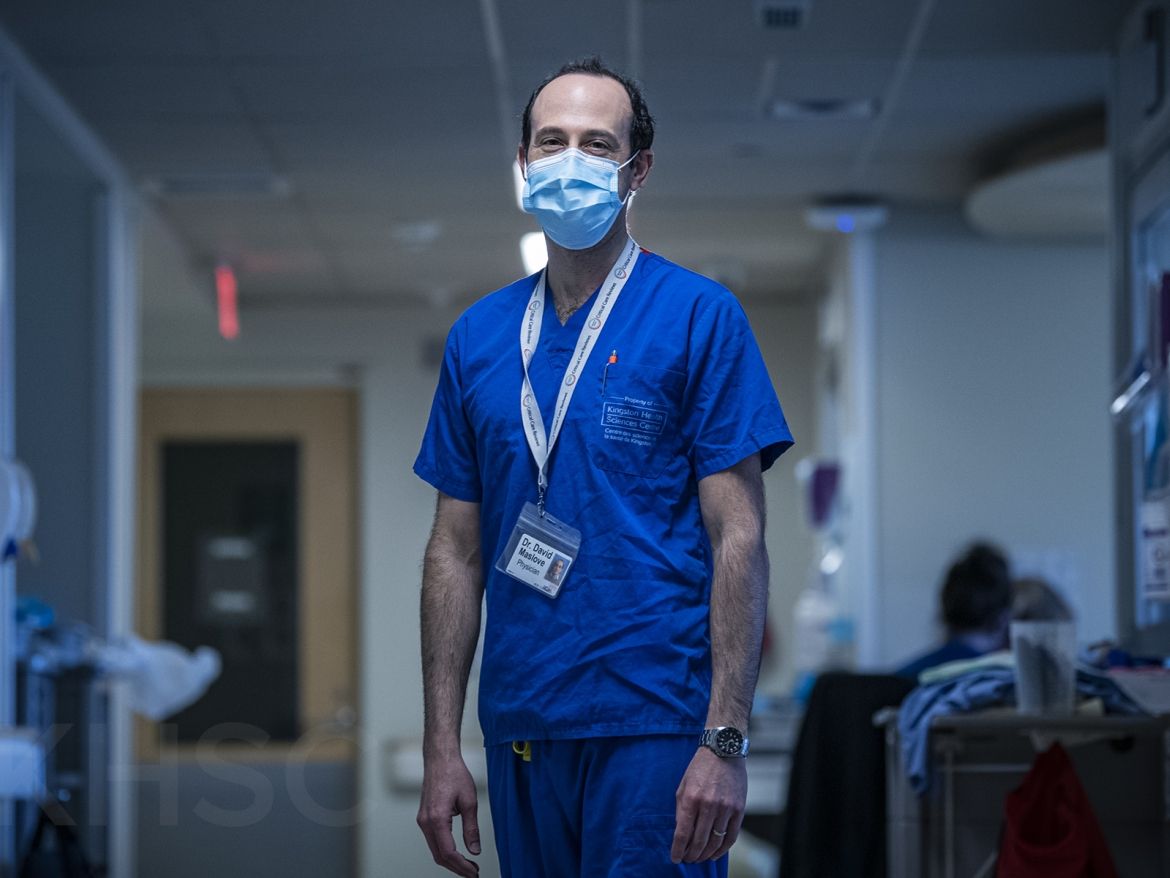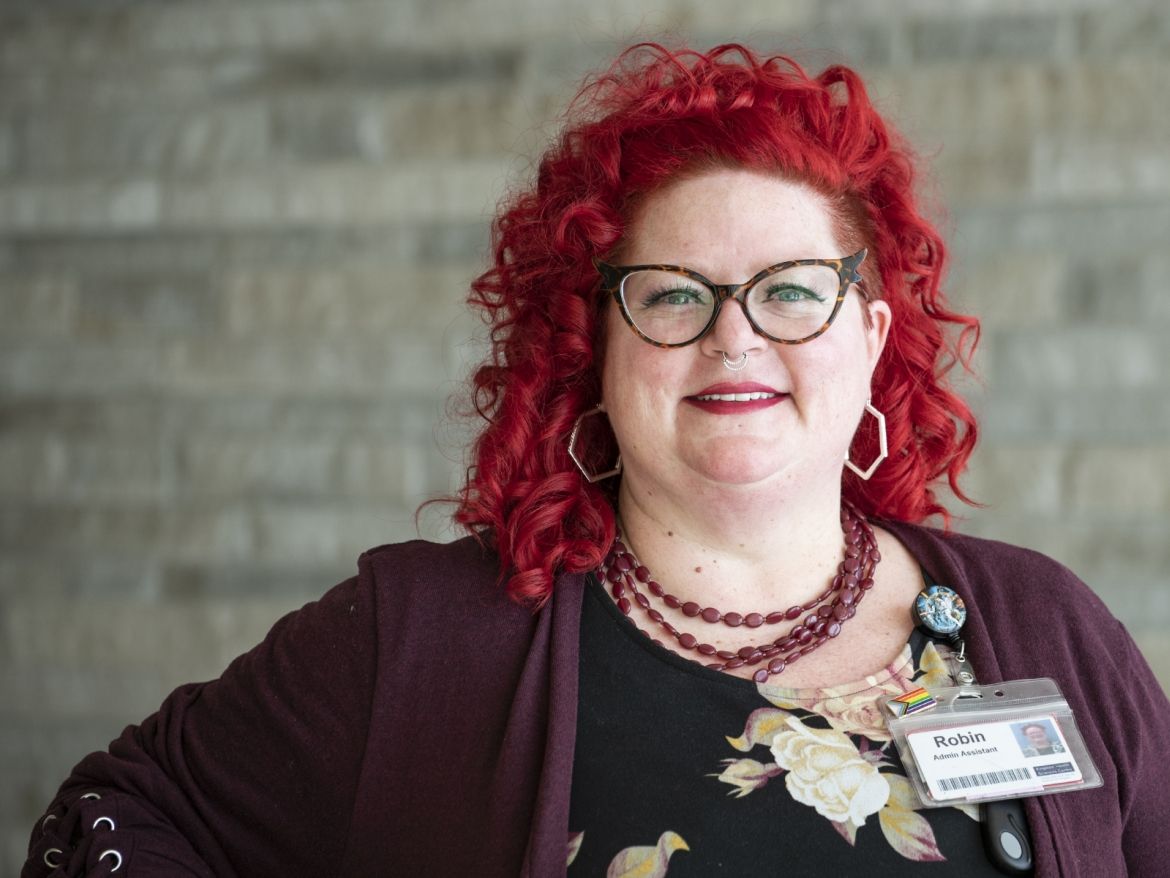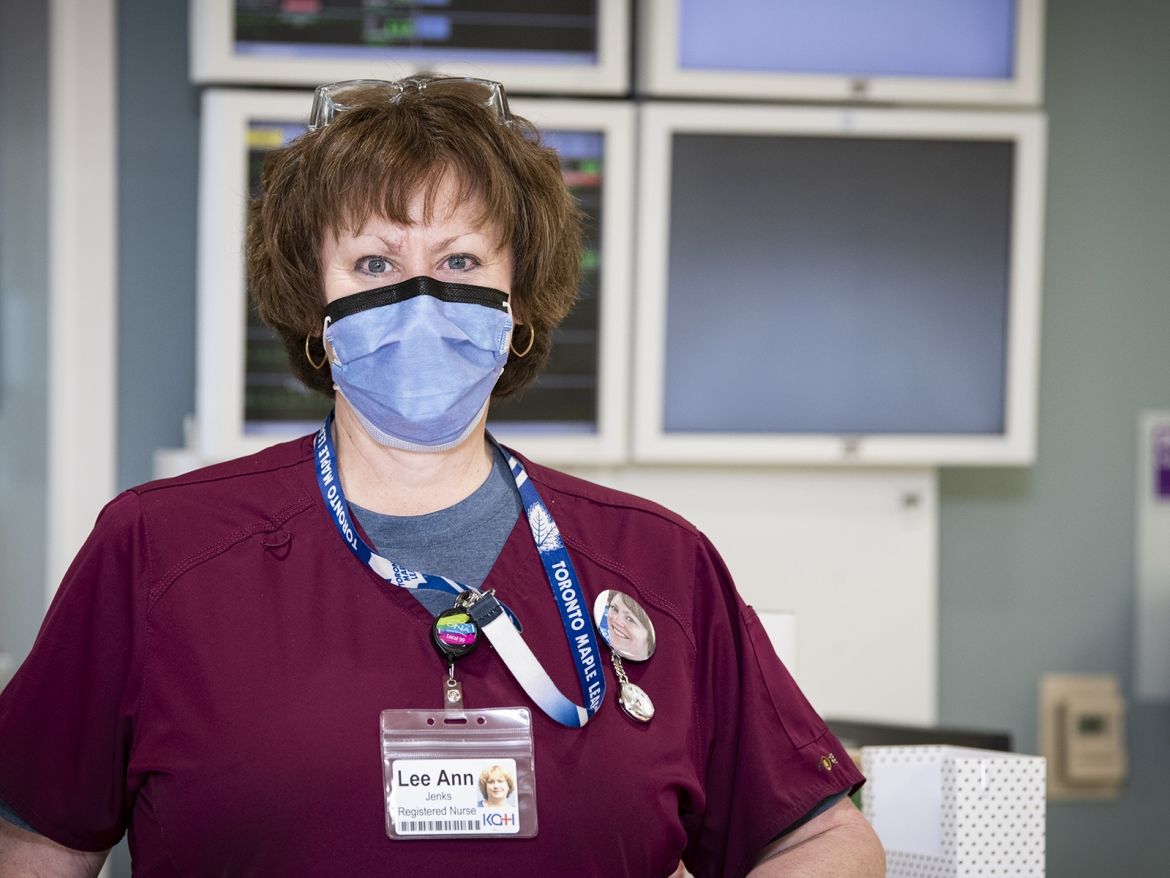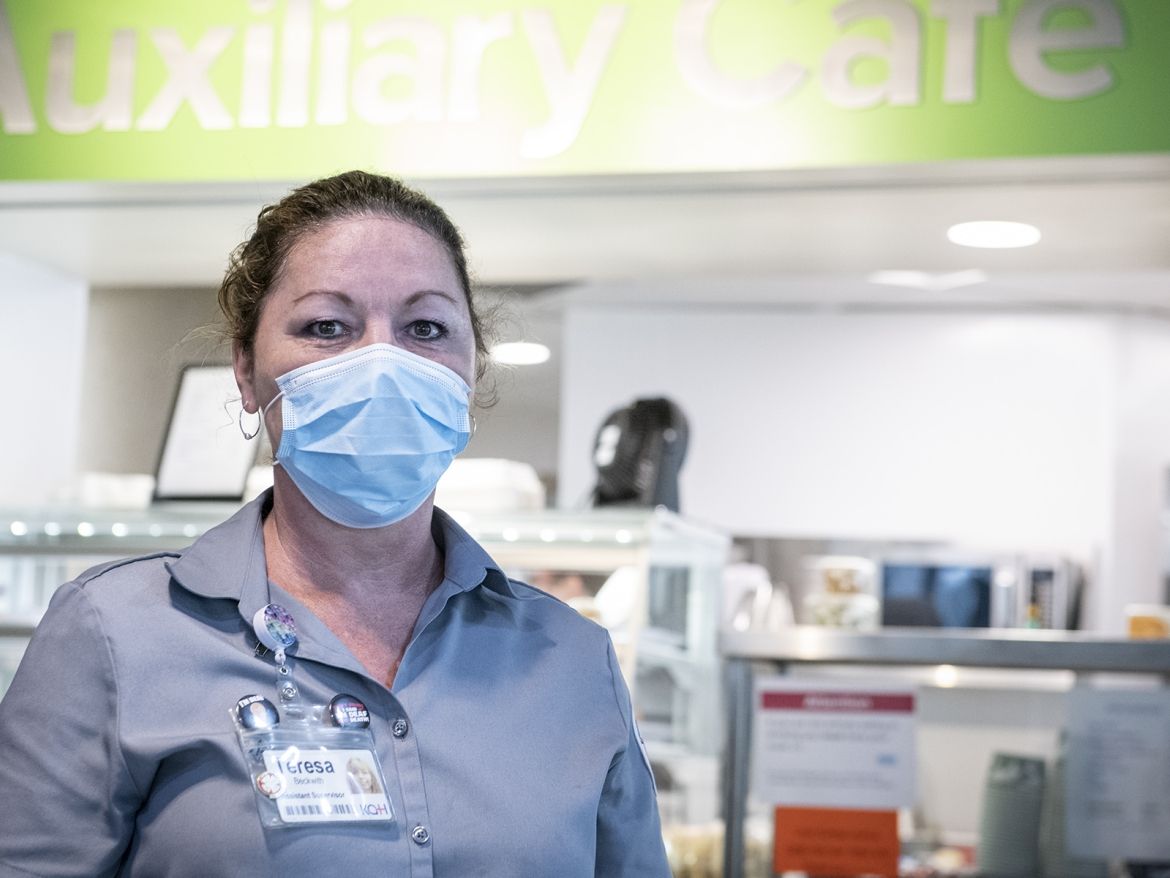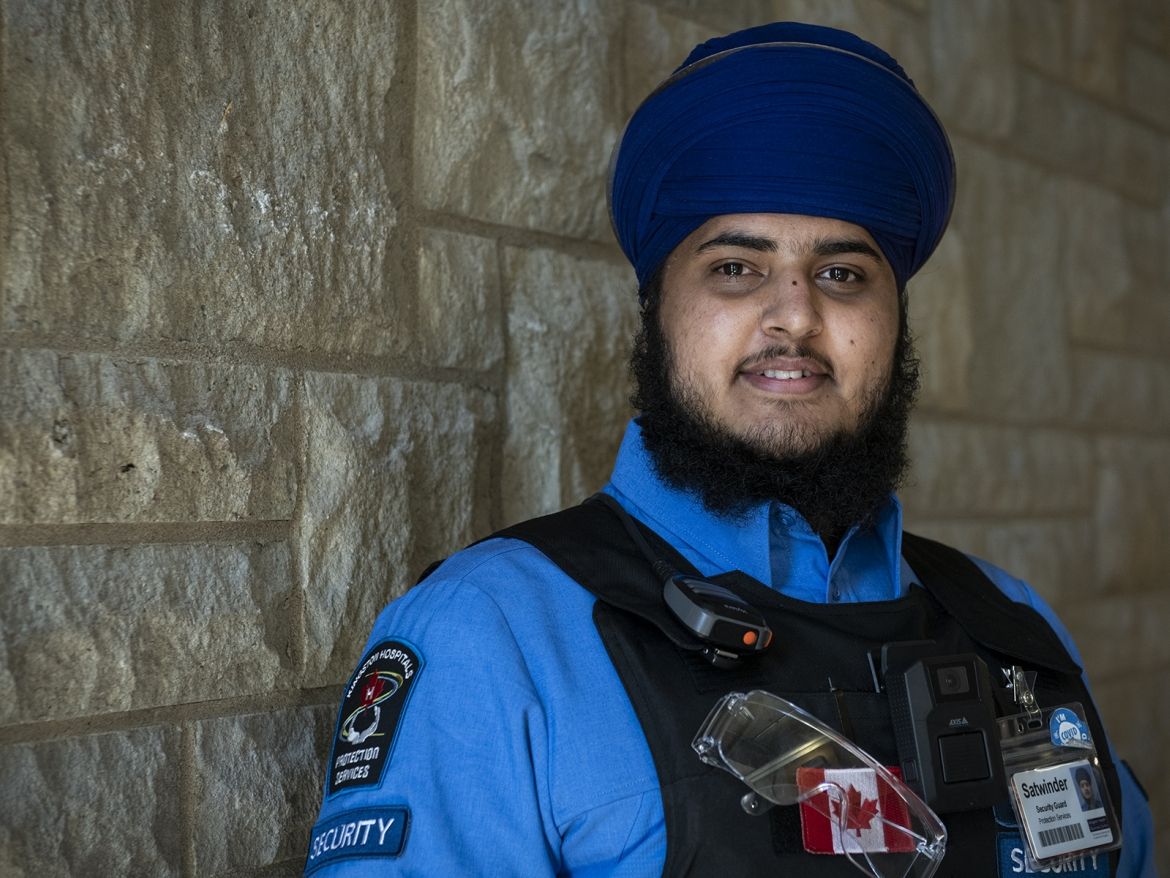During the year 2021-2022, partnerships within KHSC and with health organizations in our communities were invaluable in helping us manage critical staff shortages and ongoing inpatient capacity challenges. Our partnerships also helped us improve people’s health outcomes through innovation and had us planning for the future health-care system.
Last year, the six hospital organizations in southeastern Ontario chose Cerner to, over the next three years, implement a regional Health Information System. Called Lumeo, this clinical transformation aims to deliver better insights and brighter outcomes for all those providing and receiving health care in the region.
In addition to the many KHSC health-care workers who are providing their expertise to ensure the success of Lumeo, many are also working with health and community partners to contribute to the Frontenac, Lennox and Addington Ontario Health Team’s (FLA OHT) priority projects such as helping to create consistent experiences for patients being discharged from all three hospitals in the FLA OHT region.
With this annual report, it is our pleasure to recap for you how freeing up hospital beds, making it easier for people to access care and continually learning how to deliver the best care have been important accomplishments for KHSC over the past year. All that we have achieved was possible thanks to the hard work of the people that make KHSC great – they have stepped up in every way imaginable.
On the last day of this fiscal year, March 31, we celebrated KHSC’s fifth anniversary as an integrated organization and all of the care we’ve been able to transform together. This report also highlights several organizational and clinical improvements that were realized through the integration of inpatient and outpatient care.
As we look back on the past five years and as we slowly begin to learn to live with COVID-19 and look to the future, we know that KHSC’s culture of driving change and innovation will continue to inspire health-care providers to do the important work of delivering the highest level of specialized care for people who need us most and to keep finding new ways to improve the health of our communities.
Dr. David Pichora
President and CEO, KHSC
Axel Thesberg
Board Chair, KHSC
Stronger together: KHSC at 5
Since the integration of Kingston General Hospital (KGH) and Hotel Dieu Hospital (HDH) to create Kingston Health Sciences Centre five years ago, many benefits for patients and health-care providers have come from uniting ambulatory and acute care under one strategy focused on quality, leadership, partnership and innovation, and continual learning.
By merging financial and human resources, KHSC has been able to strengthen the continuity of care provided to patients and their families; make it easier for staff, physicians and learners to work across all sites; and support better work environments and access to care through technology. Below are some of the improvements integration has made possible.
Beyond COVID-19: emerging from the pandemic
It’s hard to believe KHSC did anything last year but keep its head above the water of three more COVID-19 pandemic waves, but it did and the accomplishments are helping to improve the health of communities throughout southeastern Ontario.
Investing in its facilities and clinical systems enabled KHSC to make innovative, essential care more accessible for people, oftentimes offering care closer to home or in more appropriate locations. New and expanded partnerships are also ensuring people have access to care when and where they need it, and helping KHSC to manage capacity pressures. Below are a few of the ways we have worked to keep our communities healthy.
Please visit KHSCConnect to read, in more detail, about our 2021-2022 accomplishments.
Portraits of people caring, leading and learning at #myKHSC
It’s been three years since we launched People of KHSC, a series of stories that profile the dedication and compassion of the people who work, learn and volunteer with us. People are the living embodiment of our mission to care for patients, families and each other through everyday actions, significant moments and exciting breakthroughs.
The profiles below are just a few of the many we published over the year. Visit our Instagram and Facebook channels to learn more about the people of KHSC.
We invite you to stay connected with us so you can keep track of the exciting things happening at Kingston Health Sciences Centre. Read our most recent news on our website or engage with us on social media by following our accounts on Twitter, Facebook, Instagram and Linkedin.
If you would like to ask us a question or share a comment about this annual report, simply click here.
To learn more about our performance over the past year, you can also click on the following links to check out our Audited Financial Statements, Strategy Performance Report, and the latest Management Discussion and Analysis.
Audited Financial Statements
Strategy Performance Report
Long Image Text
<p>The surgical program operating at both sites has come together in ways that wouldn’t have been possible before integration. Sharing Medical Device Reprocessing resources not only enhances productivity, it has helped the team recover quicker from emergencies such as site-specific flooding. As well, the team has worked to make efficient use of all 18 operating rooms (OR) by moving some procedural activity out of the HDH site ORs to procedure spaces in clinics and moving certain surgeries from the KGH site to the HDH site where they are best suited. This cooperation has enabled the team to increase dedicated OR time for emergency surgeries, thereby reducing unexpected interruptions for patients’ scheduled surgeries.</p>
Long Image Text
<p>The COVID-19 pandemic truly tested the effectiveness of an integrated KHSC workforce. Dozens of nursing managers and front-line staff were redeployed to stand up a community assessment centre, sometimes performing up to 700 tests per day, as well as a hospital-based vaccination clinic that served thousands of health-care workers. As we accepted out-of-region patient transfers and needed to ensure critical care capacity, we retrained and redeployed more than 200 staff from across all sites, including nurses, allied health professionals and administrative staff. Our cohesive teams were able to adapt rapidly while fiercely protecting the health and safety of patients, families, co-workers and our community every day.</p>
Long Image Text
<p>Point of Care Testing was implemented at the HDH site almost two years ago to offer blood analysis outside of the core laboratory at the KGH site and closer to where clinical care is being delivered. Not only has this provided results for patients and providers within minutes instead of hours, it has also saved KHSC significant costs related to laboratory testing and courier services. It has also improved the quality of results and reduced the number of samples that get rejected due to transportation delays to the KGH site. As well, staff including nurses, anesthesia assistants and respiratory therapists have been trained to use the analyzer and have welcomed the opportunity to develop new skills.</p>
Long Image Text
<p>Integration has strengthened Mental Health and Addiction Care services at KHSC as inpatient and outpatient teams united to share and improve practices around medication reconciliation, rapid access assessment for adults in crisis, suicide prevention tools and more. The integrated team has been able to reorganize its work to the benefit of those it serves. For example, the Intensive Transitional Treatment Program was able to move from the KGH site to the HDH site where it is best suited to be an alternative to hospitalization. As well, a new centralized intake process provides a single gateway to outpatient mental health care, ending multiple referrals and reducing waitlists, and a renewed care transition process has boosted the comfort and confidence of patients and families.</p>
Long Image Text
<p>With shared corporate services and funding, KHSC has been able to achieve higher levels of efficiency and make timely decisions in the best interest of patients. During the COVID-19 pandemic, a 31-bed inpatient unit was opened at the HDH site in record time to help ease inpatient capacity pressures at the KGH site. Services available at both sites like Endoscopy and Echocardiography have standardized practices and cross-trained staff since the integration of inpatient and outpatient programs and departments, making it easier to ensure patients’ access to consistent quality care. Integrated goals have also helped health-care providers increase knowledge sharing about patients, which has enabled patients to transition more smoothly between the sites.</p>
Default Title for Slide
Default Title for Slide
Default Title for Slide
Default Title for Slide
Default Title for Slide
Long Image Text
<p>Programs like KHSC @ Home and the Transitional Care Unit (TCU) are important in helping people safely transition out of the hospital. During the COVID-19 pandemic, these programs became invaluable and ready for expansion as we experienced increased demand for acute care and staff shortages. Last year, KHSC @ Home was expanded to Belleville and some surrounding rural areas and is now also offered through a Family Health Team, Providence Care Hospital, and Lennox and Addington County General Hospital. Similarly, the TCU expanded to 80 beds and now frees up over 6,000 days of hospital beds each year, while giving patients who no longer need hospital-level care the extra support they need to return home.</p>
Long Image Text
<p>The year's achievements included improving access to cancer diagnostic and treatment facilities so that people don’t have to travel as far or can receive care in a more convenient location. Thanks to generous University Hospitals Kingston Foundation donations by Brit Smith and the Homestead Landholdings Foundation and to the annual Rose of Hope golf tournament, the one-of-a-kind-in-Canada Breast Imagining Kingston facility was opened to streamline breast imaging services and clinical procedures at one location. As well, a new satellite clinic of the Lung Diagnostic Assessment Program opened at the Lennox and Addington County General Hospital in Napanee to serve the 40 per cent of patients who used to travel east to Kingston for specific evaluations.</p>
Long Image Text
<p>Partnerships with health and community organizations help KHSC deliver more person-centred care where it is needed most. With support from the University Hospitals Kingston Foundation, KHSC brought ultrasound services to Street Health Centre, speeding treatment plans for people with Hepatitis C. An innovative partnership with Focus Eye Centre is also improving the quality of life for people with cataracts by reducing surgery wait times. Another partnership, with Queen’s University and the Weeneebayko Area Health Authority has brought a portable MRI machine to Weeneebayko General Hospital to study the impact of making this technology available to remote northern communities.</p>
Long Image Text
<p>Growing the number of complex surgeries that can be performed in Kingston, saving patients the travel time and stress of having to receive care outside of southeastern Ontario, has been a focus for KHSC for several years. Last year, we opened one of the most advanced hybrid operating rooms the world has to offer, bringing advanced minimally-invasive endovascular procedures closer to home. We also began offering minimally-invasive mitral valve clip replacement for people too fragile for open-heart surgery. In the past year, KHSC’s A.B. Smith QC Robotics program, officially launched in 2018, became the highest volume program in Canada – regularly completing double the number of yearly robotic-assisted colorectal cancer surgeries performed in larger cities.</p>
Long Image Text
<p>KHSC was once again ranked one of the top 40 research hospitals in Canada by Research Infosource. The Kingston General Health Research Institute is home to over 370 researchers who are actively involved in research projects and clinical trials. Dr. David Maslove, a KHSC specialist in intensive care, is one of the researchers leading the Canadian effort to find out why some people contracted COVID-19 and suffered only mild symptoms, while others, many of who were young and in generally good health ended up in the ICU on a ventilator – the answer may lay in our DNA. Around 100 KHSC patients have been recruited to the GenOMICC study that was first started in the United Kingdom and that has the goal of recruiting 100,000 people worldwide.</p>
Default Title for Slide
Default Title for Slide
Default Title for Slide
Default Title for Slide
Default Title for Slide
Long Image Text
<p>Robin Robertson never thought she would end up “on the other side” of her addiction and mental health issues. Now 12 years sober and recently hired as the administrative assistant for the Mental Health and Addictions Care program at KHSC, she is bent on removing one big hurdle that challenges anyone taking that same journey: stigma. “I think putting a human face on that suffering is how we start talking more about the impact of stigma.” Robin has helped make that conversation happen through the Stand up to Stigma: Let’s Talk Mental Health campaign, a hospital and community-wide project anchored by regular webinars, an online auction to raise funds to reduce stigma in the community and special events.</p>
Long Image Text
<p>Patients undoubtedly appreciate Lee-Ann’s expert skills as a critical care nurse, but they also acknowledge her caring and compassionate ways and the time she takes to explain things to them. “I always try to imagine how I would feel as a patient. I would want to be treated with kindness and dignity. I would want to feel safe and to be comfortable. I would want to receive a high level of care. I am proud to be part of the ICU team at KHSC. The bar for learning is high in the critical care environment and the best part of my job is the teamwork. We work so well together and there is no team member who is more important than anyone else. We all bring valuable skills and knowledge to the bedside.”</p>
Long Image Text
<p>Although the pandemic has come with challenges for everyone, it has presented particularly difficult obstacles for those with hearing impairments, like Theresa Beckwith, Auxillary Café assistant supervisor, who relies on lip-reading to help in conversations. “The whole mask thing was so nerve-wracking at the beginning and I was so frustrated because it was something my brain had to get used to. However, I found the more I ‘practiced’ taking orders without seeing the customer's face, the better I got.” Beckwith, who has worked in the Café in a number of different roles for 26 years, is completely deaf, but she received a cochlear implant 15 years ago that restored a portion of her hearing.</p>
Long Image Text
<p>Satwinder Singh first started working as an access screener during the pandemic, checking people for COVID-19 symptoms. “When I was working as a screener I saw the security guards at KHSC and how professional they were and that became a dream job for me. I applied to become a security guard and said ‘give me that job and I want to show you what I can do.’ I’ve been at KHSC for almost a year now and it’s been lovely. It’s been great to support the patients. It really is my dream job.” In one instance, he was able to support a patient in emotional distress by offering a compassionate ear. “We bonded by talking about how much we both loved Indian food and I told her all about my butter chicken recipe.”</p>
Long Image Text
<p>Coming back to KHSC as a new clinician during the pandemic has been an inspiring experience for physiotherapy resident, Virginia Lew. “I was a student learner at KHSC during the first wave of the pandemic. I was terrified because I had never been in acute care before, and was not confident in my skills in this setting, let alone in the midst of a pandemic. It is humbling to see even seasoned physiotherapists be unafraid to reach out to their colleagues for help and education. Everyone has been very positive and uplifting, giving me feedback and encouragement, and helping me get over my imposter syndrome as a new physiotherapist. Being part of this truly collaborative team is one of the best parts of my job.”</p>
Default Title for Slide
Default Title for Slide
Default Title for Slide
Default Title for Slide
Default Title for Slide
All that we have achieved was possible thanks to the hard work of the people that make KHSC great – they have stepped up in every way imaginable.
